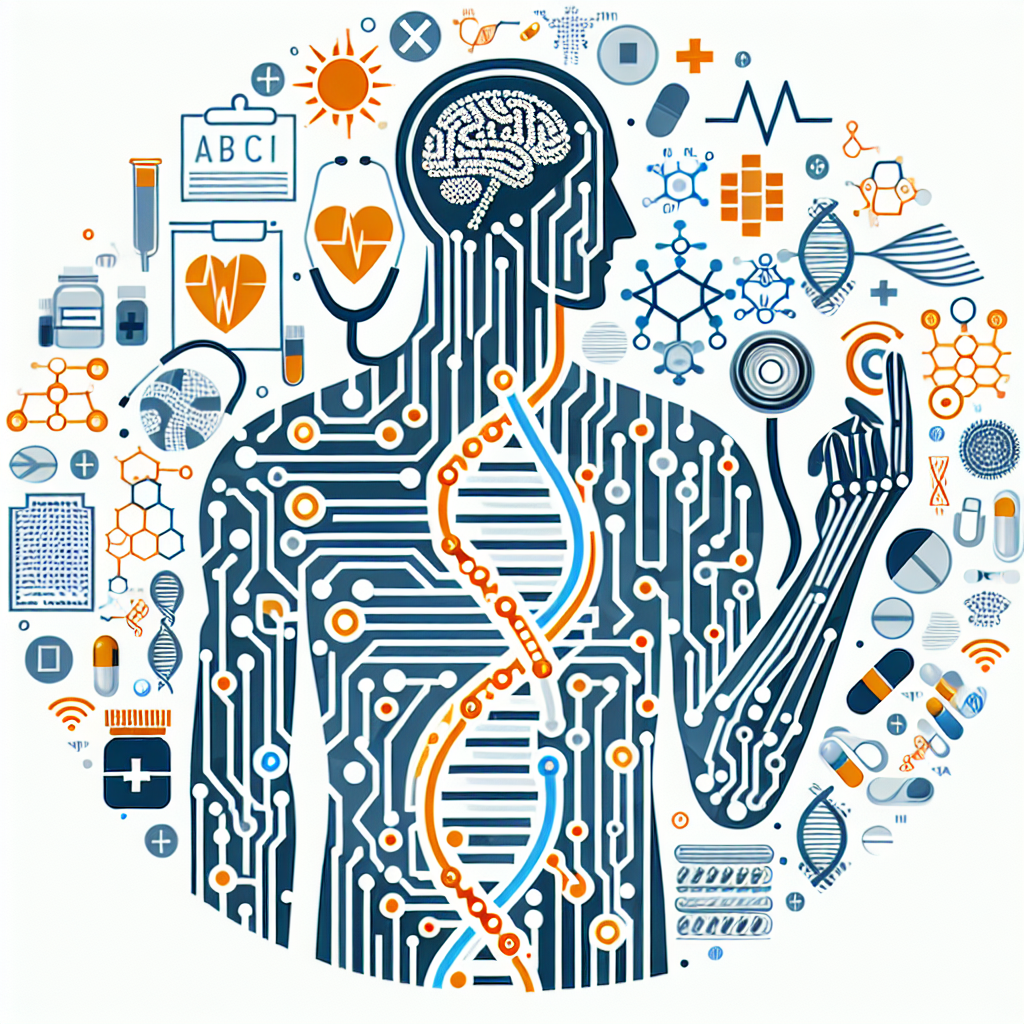Artificial General Intelligence (AGI) is a branch of artificial intelligence that aims to create machines capable of performing any intellectual task that a human can do. In recent years, AGI has been making significant strides in the healthcare industry, transforming the way medical professionals diagnose, treat, and prevent diseases. This article will explore how AGI is revolutionizing healthcare and the benefits it brings to both patients and healthcare providers.
The Role of AGI in Healthcare
AGI is revolutionizing healthcare by providing medical professionals with powerful tools to improve patient care and outcomes. One of the key benefits of AGI in healthcare is its ability to analyze vast amounts of medical data quickly and accurately. This allows healthcare providers to make more informed decisions based on the latest research and evidence, leading to better treatment plans and outcomes for patients.
AGI is also being used to develop personalized medicine, a form of healthcare that tailors treatment plans to each individual patient based on their unique genetic makeup, lifestyle, and medical history. By analyzing a patient’s data, AGI can predict how they will respond to different treatments, helping doctors choose the most effective and least invasive options for each patient.
Another important application of AGI in healthcare is in medical imaging. AGI-powered algorithms can analyze medical images, such as X-rays, CT scans, and MRIs, with incredible accuracy, detecting subtle abnormalities that may be missed by human radiologists. This can lead to earlier and more accurate diagnoses, improving patient outcomes and reducing the need for invasive procedures.
AGI is also being used to develop virtual healthcare assistants that can answer patients’ questions, schedule appointments, and provide personalized health advice. These virtual assistants can help patients manage chronic conditions, monitor their health, and adhere to treatment plans, improving patient engagement and compliance.
Overall, AGI is transforming healthcare by providing medical professionals with powerful tools to diagnose, treat, and prevent diseases more effectively, leading to better outcomes for patients and reducing healthcare costs.
FAQs
Q: Is AGI replacing human doctors and healthcare providers?
A: While AGI is transforming healthcare by providing medical professionals with powerful tools to improve patient care, it is not replacing human doctors and healthcare providers. Instead, AGI is augmenting their capabilities, allowing them to make more informed decisions and provide better care to their patients.
Q: How secure is patient data when using AGI in healthcare?
A: Patient data security is a top priority when using AGI in healthcare. Healthcare providers must comply with strict regulations, such as the Health Insurance Portability and Accountability Act (HIPAA), to protect patient data and ensure confidentiality. AGI developers also implement robust security measures to safeguard patient data against unauthorized access and cyberattacks.
Q: What are the limitations of AGI in healthcare?
A: While AGI has the potential to revolutionize healthcare, there are limitations to its current capabilities. One of the main challenges is the lack of standardized data in healthcare, which can affect the accuracy and reliability of AGI algorithms. Additionally, AGI may not be able to replicate the complex decision-making processes of human doctors in certain situations, such as emergencies or ethical dilemmas.
Q: How can healthcare providers incorporate AGI into their practices?
A: Healthcare providers can incorporate AGI into their practices by partnering with AGI developers and technology companies to implement AI-powered solutions that address specific healthcare challenges. Providers can also invest in training their staff to use AGI tools effectively and integrate them into existing workflows to improve patient care and outcomes.
Q: What is the future of AGI in healthcare?
A: The future of AGI in healthcare is promising, with continued advancements in technology and research. As AGI algorithms become more sophisticated and accurate, they will play an increasingly important role in diagnosing, treating, and preventing diseases. AGI is also expected to improve patient engagement and outcomes by providing personalized medicine and virtual healthcare assistants that empower patients to take control of their health.
In conclusion, AGI is transforming the healthcare industry by providing medical professionals with powerful tools to improve patient care and outcomes. From personalized medicine to medical imaging and virtual healthcare assistants, AGI is revolutionizing the way healthcare is delivered, leading to better outcomes for patients and reducing healthcare costs. As AGI continues to advance, it will play an increasingly important role in shaping the future of healthcare and improving the lives of patients around the world.

